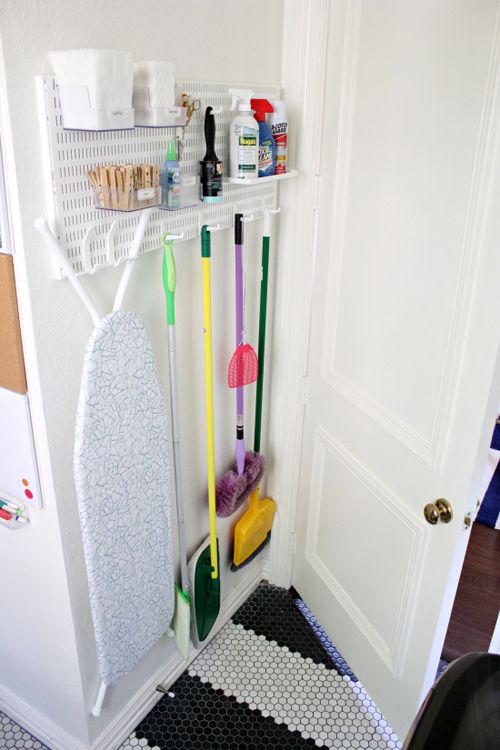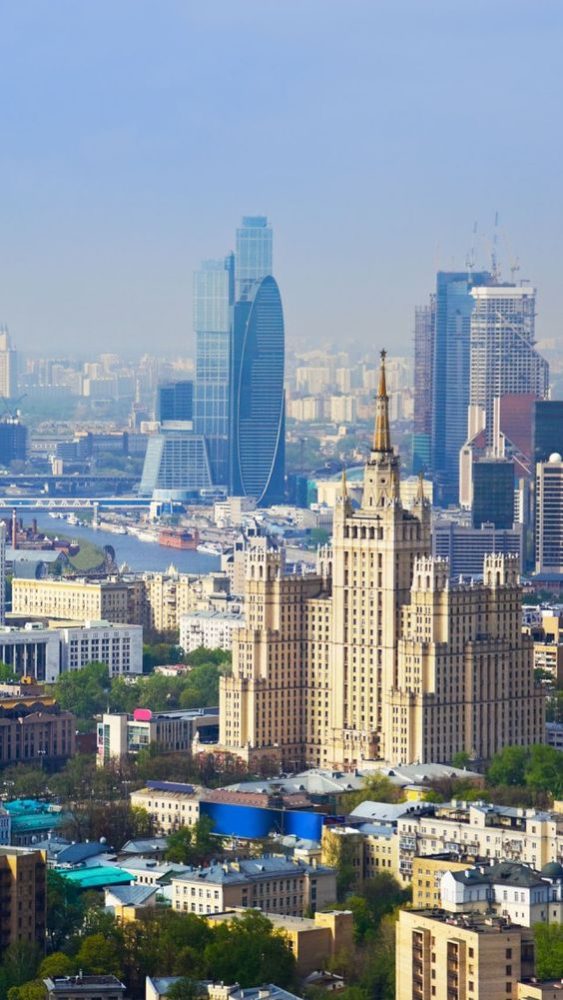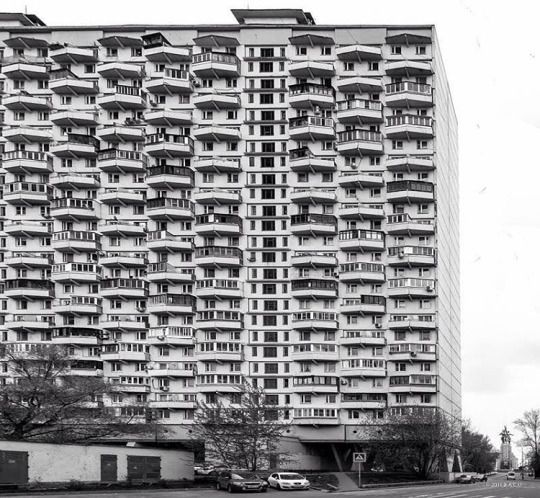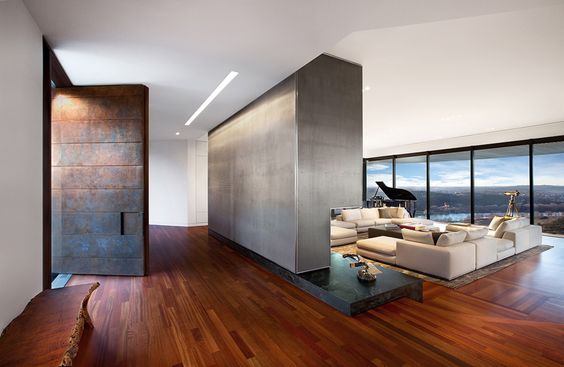The Constitution guarantees the right to private propertyproperty, but there are exceptions to this right, and which ones and for what you can lose your only home, we will tell you in this article. The owner of real estate in Russia, as in most other countries, in addition to rights, is also endowed with responsibilities, namely the burden of maintaining his home, and here we cannot do without explanations. The apartment is an integral elementapartment building and as in the well-known proverb here the freedom of one owner is limited by the freedom of another. All owners have the same rights and such factors as the area of ownership do not matter: your apartment can be 200 meters, and in the neighboring one-room apartment there are 5 owners - you all have equal rights to the common property, but the fee for repairs and maintenance of the entire building depends on the area of your apartment. The tax on the apartment is calculated in the same way - from the area. In order to eliminate possible neighborly conflicts, in the middle of the 20th century, the rules of the hostel were developed, which regulated all rights and obligations, later this regulation was repeated in the SanPiNs.
The apartment is an integral elementapartment building and as in the well-known proverb here the freedom of one owner is limited by the freedom of another. All owners have the same rights and such factors as the area of ownership do not matter: your apartment can be 200 meters, and in the neighboring one-room apartment there are 5 owners - you all have equal rights to the common property, but the fee for repairs and maintenance of the entire building depends on the area of your apartment. The tax on the apartment is calculated in the same way - from the area. In order to eliminate possible neighborly conflicts, in the middle of the 20th century, the rules of the hostel were developed, which regulated all rights and obligations, later this regulation was repeated in the SanPiNs. In addition to the fine for some"Misdemeanors" can lead to the loss of the property itself, which we wrote about below: Failure to comply with the sanitary and hygienic conditions of the dormitory This means that littering and creating unsanitary conditions in the common area is unacceptable.
In addition to the fine for some"Misdemeanors" can lead to the loss of the property itself, which we wrote about below: Failure to comply with the sanitary and hygienic conditions of the dormitory This means that littering and creating unsanitary conditions in the common area is unacceptable. Failure to maintain sanitary conditions in one's ownapartment Don't worry, you won't be fined for unwashed dishes, but if the apartment is a constant mess and unpleasant insects have appeared in it and have made their way to the neighbors, then expect housing inspectors who will forcibly remove the garbage from the apartment and carry out sanitary treatment, and you will be obliged to pay not only a fine, but also cleaning services. The first time they will issue a fine and give an order to clean, and if the cleaning is not done by the time the inspectors visit, then it will be done against the will of the owner, who will be charged with paying for this service. If malicious violation of sanitary standards is recorded in the apartment, then it may come to eviction. In 2013, such a case occurred in Moscow: a woman who systematically violated the rules of residence was evicted from a privatized apartment to a dormitory, and her apartment was cleaned and put up for auction.
Failure to maintain sanitary conditions in one's ownapartment Don't worry, you won't be fined for unwashed dishes, but if the apartment is a constant mess and unpleasant insects have appeared in it and have made their way to the neighbors, then expect housing inspectors who will forcibly remove the garbage from the apartment and carry out sanitary treatment, and you will be obliged to pay not only a fine, but also cleaning services. The first time they will issue a fine and give an order to clean, and if the cleaning is not done by the time the inspectors visit, then it will be done against the will of the owner, who will be charged with paying for this service. If malicious violation of sanitary standards is recorded in the apartment, then it may come to eviction. In 2013, such a case occurred in Moscow: a woman who systematically violated the rules of residence was evicted from a privatized apartment to a dormitory, and her apartment was cleaned and put up for auction. Don't pay utility bills Samea sad result (eviction) is possible if you do not bear the burden of maintaining the apartment, namely, do not pay utility bills. Utility bills are a separate topic for discussion, but the right of ownership obliges a person to pay bills for the services and resources provided on time. If you systematically violate the burden of maintenance or accumulate debts, then the management company can go to court with a demand to pay off the debt, and service providers, such as a water utility or power grid, stop supplying their resources to the problem apartment.
Don't pay utility bills Samea sad result (eviction) is possible if you do not bear the burden of maintaining the apartment, namely, do not pay utility bills. Utility bills are a separate topic for discussion, but the right of ownership obliges a person to pay bills for the services and resources provided on time. If you systematically violate the burden of maintenance or accumulate debts, then the management company can go to court with a demand to pay off the debt, and service providers, such as a water utility or power grid, stop supplying their resources to the problem apartment. Since 2015, a norm has been adopted thatstates that if a person has a debt for utility bills of more than 30 thousand rubles, then he will be restricted from leaving the country. If the amount of debt is more than 500 thousand rubles, then the process of eviction to a smaller area is possible, for example, if a person has accumulated such a debt in a two-room apartment, then he is forcibly resettled to a one-room apartment, and his apartment is put up for auction and the resulting debt is paid off. If it was a one-room apartment, then the debtor will be provided with a room in a dormitory or in a communal apartment. And it does not matter if the apartment was owned - now this is the norm, since the bill on deprivatization was adopted in the spring of 2015. If a person has accumulated large debts in a municipal apartment, then the administration has the right to unilaterally terminate the social rental agreement with the debtor and remove him from the register, which sounds in simple language like this: throw him out into the street.
Since 2015, a norm has been adopted thatstates that if a person has a debt for utility bills of more than 30 thousand rubles, then he will be restricted from leaving the country. If the amount of debt is more than 500 thousand rubles, then the process of eviction to a smaller area is possible, for example, if a person has accumulated such a debt in a two-room apartment, then he is forcibly resettled to a one-room apartment, and his apartment is put up for auction and the resulting debt is paid off. If it was a one-room apartment, then the debtor will be provided with a room in a dormitory or in a communal apartment. And it does not matter if the apartment was owned - now this is the norm, since the bill on deprivatization was adopted in the spring of 2015. If a person has accumulated large debts in a municipal apartment, then the administration has the right to unilaterally terminate the social rental agreement with the debtor and remove him from the register, which sounds in simple language like this: throw him out into the street. Littering the apartment and common areasPeople often store strollers and bicycles in front doors and entrances, sometimes creating barriers to evacuation routes. If an emergency situation occurs, these elements can hinder evacuation and the number of victims can increase, especially strollers and bicycles in entrance hallways hinder people with limited mobility, since they cannot pass each other in a narrow corridor with a bicycle. Clutter also includes the habit of storing things and furniture in internal corridors. These spontaneous warehouses not only block the evacuation route, but can also be a source of fire.
Littering the apartment and common areasPeople often store strollers and bicycles in front doors and entrances, sometimes creating barriers to evacuation routes. If an emergency situation occurs, these elements can hinder evacuation and the number of victims can increase, especially strollers and bicycles in entrance hallways hinder people with limited mobility, since they cannot pass each other in a narrow corridor with a bicycle. Clutter also includes the habit of storing things and furniture in internal corridors. These spontaneous warehouses not only block the evacuation route, but can also be a source of fire. Dismantling the emergency staircase on the balcony andblocking hatches Many series of high-rise buildings were designed with a fire escape on the balcony, which allowed residents of the upper floors to go down to the floors below, where they could be rescued by firefighters, however, many owners considered this ladder an unnecessary element and cut it off, and welded the hatches. This was not always done with malicious intent, since intruders could enter the apartment using such a ladder. However, no one has canceled fire regulations, and if an inspection comes, then in addition to a fine, you will also have to restore the ladder and open the hatches.
Dismantling the emergency staircase on the balcony andblocking hatches Many series of high-rise buildings were designed with a fire escape on the balcony, which allowed residents of the upper floors to go down to the floors below, where they could be rescued by firefighters, however, many owners considered this ladder an unnecessary element and cut it off, and welded the hatches. This was not always done with malicious intent, since intruders could enter the apartment using such a ladder. However, no one has canceled fire regulations, and if an inspection comes, then in addition to a fine, you will also have to restore the ladder and open the hatches. Bars on the windows They started activelyinstall in the 90s, during the rampant crime, to protect the property in the apartment from intruders, but you must not forget that the window can sometimes be the only option for salvation, for example, if a fire occurred in the entrance and all the corridors are filled with acrid smoke. For a grate that blocks the ability to get out, you can be fined by both the fire inspectorate and the management company. But do not worry: if you really need a grate on the window, then install a model that has an opening lever from the room (not a lock, the key of which we will lose during an emergency). Such a model of grates will prevent entry into the apartment through the window and at the same time will not become an obstacle if an emergency occurs.
Bars on the windows They started activelyinstall in the 90s, during the rampant crime, to protect the property in the apartment from intruders, but you must not forget that the window can sometimes be the only option for salvation, for example, if a fire occurred in the entrance and all the corridors are filled with acrid smoke. For a grate that blocks the ability to get out, you can be fined by both the fire inspectorate and the management company. But do not worry: if you really need a grate on the window, then install a model that has an opening lever from the room (not a lock, the key of which we will lose during an emergency). Such a model of grates will prevent entry into the apartment through the window and at the same time will not become an obstacle if an emergency occurs. Metal doors Almost everythe entrance door to the apartment is metal, and 19 out of 20 of these doors open outward, i.e. into the entrance. This issue did not bother anyone much before, since the main purpose of installing a metal door is to make it impossible to break into the apartment, because it is known that it is possible to knock the door off its hinges only if it opens into the apartment. But this contradicts fire safety regulations, since the door should not interfere with entering the premises during an emergency. According to fire safety regulations, it is allowed to install metal doors, but with an opening into the apartment. Otherwise, to remove the door, firefighters will have to saw off its hinges, which will take up precious time for rescue, and in 2014, a Moscow court ruled that doors must open inward into the apartment. Theoretically, all doors that open into the entrance are dangerous, since they can block the doors of other apartments or interfere with the passage.
Metal doors Almost everythe entrance door to the apartment is metal, and 19 out of 20 of these doors open outward, i.e. into the entrance. This issue did not bother anyone much before, since the main purpose of installing a metal door is to make it impossible to break into the apartment, because it is known that it is possible to knock the door off its hinges only if it opens into the apartment. But this contradicts fire safety regulations, since the door should not interfere with entering the premises during an emergency. According to fire safety regulations, it is allowed to install metal doors, but with an opening into the apartment. Otherwise, to remove the door, firefighters will have to saw off its hinges, which will take up precious time for rescue, and in 2014, a Moscow court ruled that doors must open inward into the apartment. Theoretically, all doors that open into the entrance are dangerous, since they can block the doors of other apartments or interfere with the passage. Today we learned about the finesthe owner of the apartment may receive, and next time we will talk about what fines and prohibitions await the owner during repairs and what is strictly forbidden to change in apartments.
Today we learned about the finesthe owner of the apartment may receive, and next time we will talk about what fines and prohibitions await the owner during repairs and what is strictly forbidden to change in apartments.
Fine for the apartment right up to dispossession: for what?



